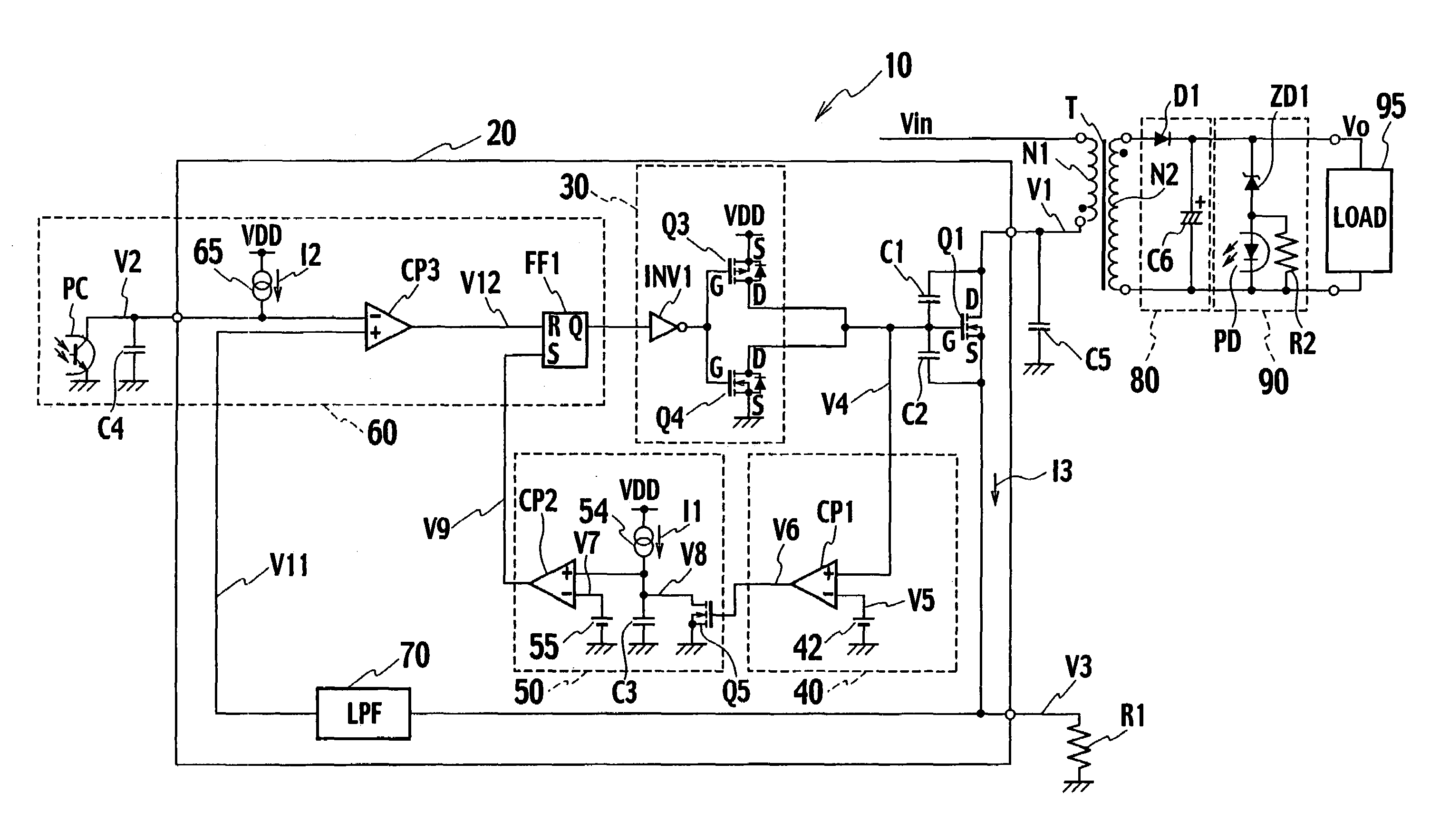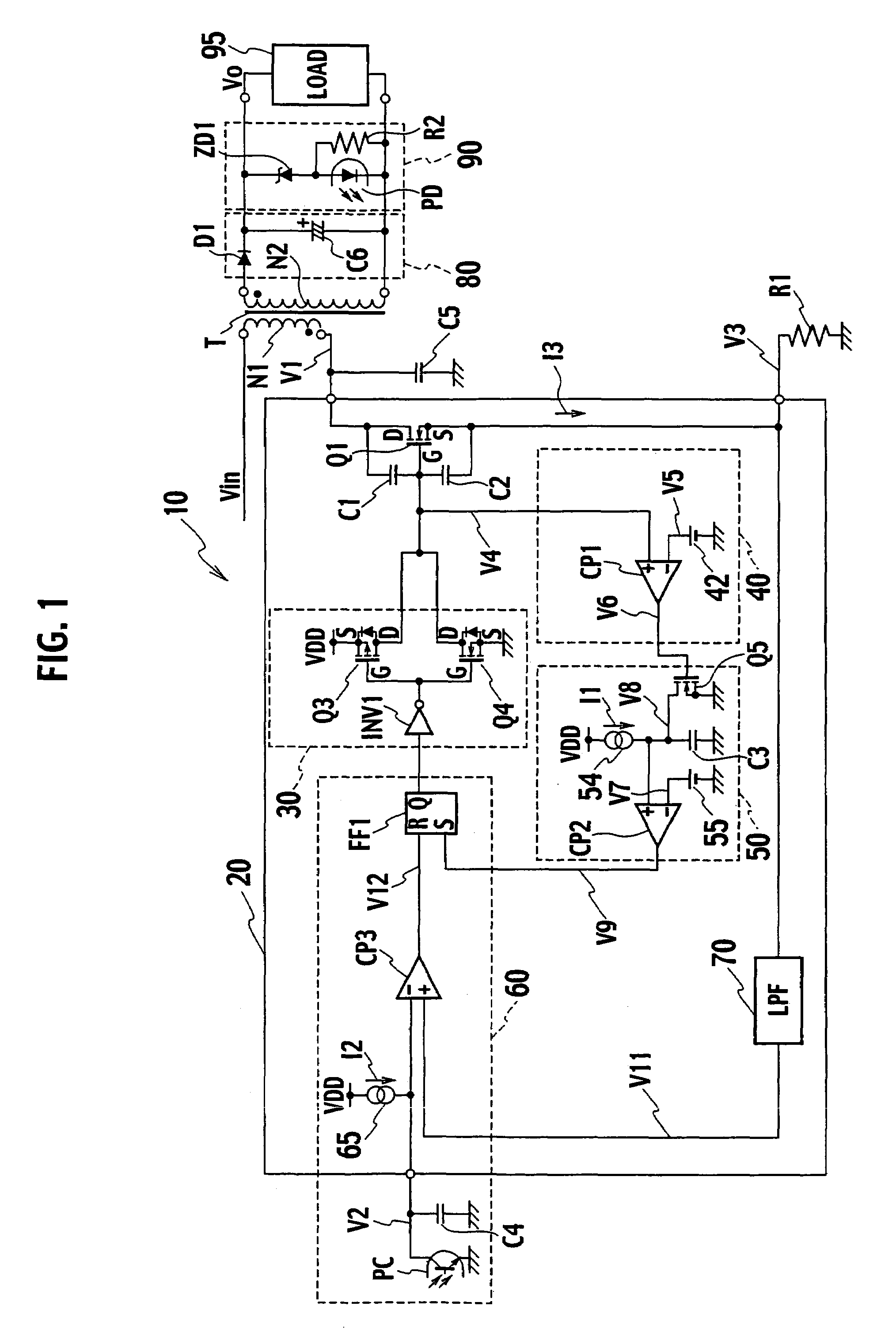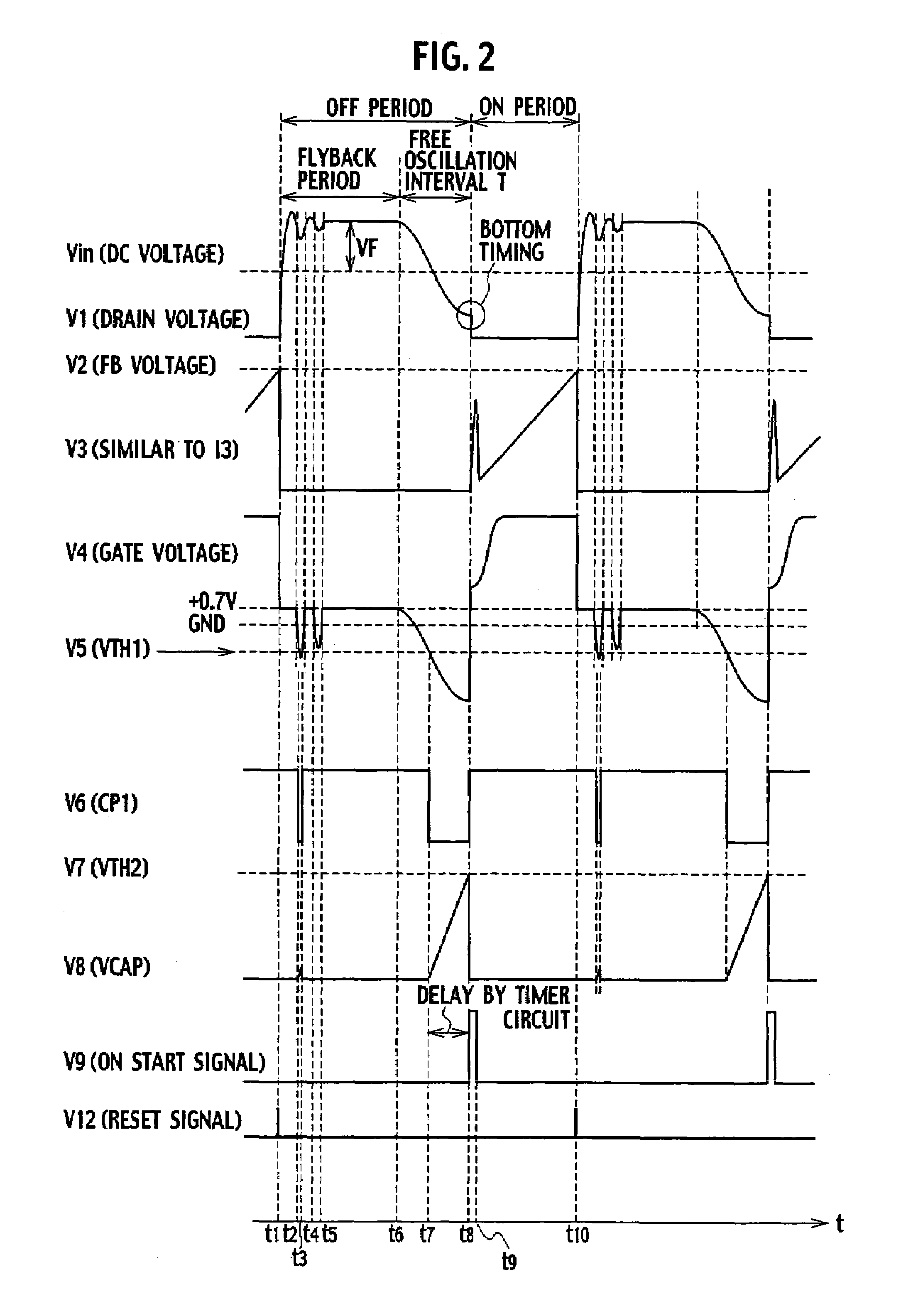Switching power source apparatus with voltage gate detector for the switch
a technology of voltage gate detector and switch, which is applied in the direction of pulse technique, process and machine control, instruments, etc., can solve the problems of increasing the cost of the difficulty of fabricating the switching power source apparatus into a small-size package, etc., and achieve the effect of preventing an erroneous operation of the switching element and increasing the impedan
- Summary
- Abstract
- Description
- Claims
- Application Information
AI Technical Summary
Benefits of technology
Problems solved by technology
Method used
Image
Examples
first modification
[0046]FIG. 3 shows a characteristic part of the first modification of the switching power source apparatus shown in FIG. 1.
[0047]The first modification additionally arranges an impedance adjuster 100 between the driver 30. and the switching element Q1 of the configuration of FIG. 1. The impedance adjuster 100 provides a high impedance during an OFF period of the switching element Q1, to increase an amplitude voltage of parasitic oscillation occurring at the gate of the switching element Q1 after a flyback period.
[0048]In the configuration with the impedance adjuster 100, the drain of the drive element Q3 made of a p-type MOSFET is directly connected to the gate of the switching element Q1, the drain of the drive element Q4 made of an n-type MOSFET is connected through a resistor R3 to the gate of the switching element Q1, and the gate of the switching element Q1 is connected to the positive input terminal of the comparator CP1.
[0049]Operation of the impedance adjuster 100 will be ex...
second modification
[0052]FIG. 4 shows a characteristic part of the second modification of the switching power source apparatus shown in FIG. 1.
[0053]The second modification additionally arranges an impedance adjuster 110 between the driver 30 and the switching element Q1 of the configuration of FIG. 1. The impedance adjuster 110 selectively provides a high impedance during an OFF period of the switching element Q1 to increase an amplitude voltage of parasitic oscillation occurring at the gate of the switching element Q1 after a flyback period.
[0054]In the configuration with the impedance adjuster 110, the drain of the drive element Q3 made of a p-type MOSFET is directly connected to the gate of the switching element Q1, the drain of the drive element Q4 made of an n-type MOSFET is connected to a cathode of a Zener diode ZD2, an anode of the Zener diode ZD2 is connected to the gate of the switching element Q1, and the gate of the switching element Q1 is connected to the positive input terminal of the c...
third modification
[0062]FIG. 6 shows a characteristic part of the third modification of the switching power source apparatus shown in FIG. 1.
[0063]The third modification additionally arranges an impedance adjuster 120 between the driver 30 and the switching element Q1 of the configuration of FIG. 1. The impedance adjuster 120 selectively provides a high impedance during an OFF period of the switching element Q1, to increase an amplitude voltage of parasitic oscillation occurring at the gate of the switching element Q1 after a flyback period.
[0064]In the configuration with the impedance adjuster 120, the drain of the drive element Q3 made of a p-type MOSFET is directly connected to the gate of the switching element Q1, the drain of the drive element Q4 made of an n-type MOSFET is connected to a cathode of a diode D4, an anode of the diode D4 is connected to the gate of the switching element Q1, the gate of the switching element Q1 is connected to a cathode of a diode D5, an anode of the diode D5 is co...
PUM
 Login to View More
Login to View More Abstract
Description
Claims
Application Information
 Login to View More
Login to View More - R&D
- Intellectual Property
- Life Sciences
- Materials
- Tech Scout
- Unparalleled Data Quality
- Higher Quality Content
- 60% Fewer Hallucinations
Browse by: Latest US Patents, China's latest patents, Technical Efficacy Thesaurus, Application Domain, Technology Topic, Popular Technical Reports.
© 2025 PatSnap. All rights reserved.Legal|Privacy policy|Modern Slavery Act Transparency Statement|Sitemap|About US| Contact US: help@patsnap.com



